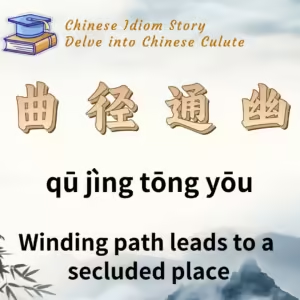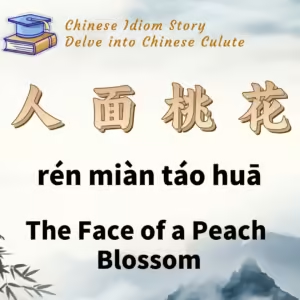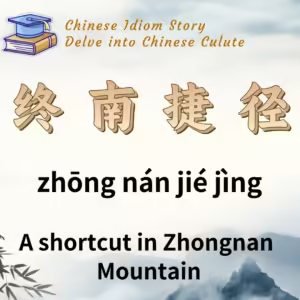
Chinese Idiom: 曲径通幽 (Qu Jing Tong You)
English Translation: Winding path leads to a secluded place
pīn yīn: qū jìng tōng yōu
Idiom Meaning: This idiom describes a winding path that leads to a deep and quiet place, often evoking a sense of tranquility and hidden beauty.
Historical Source: 《题破山寺后禅院》 (On the Back Zen Courtyard of the Broken Mountain Temple) by Chang Jian during the Tang Dynasty.
Idiom Story:
Chang Jian, who passed the imperial examination in 727 AD during the Tang Dynasty, served as a local official in Xuyi County, Jiangsu. Despite his lack of success in his official career, he found solace in nature, composing many poems about landscapes and pastoral life, as well as some on border themes. His poetic style is known for its clarity and serenity.
In the poem 《题破山寺后禅院》, he captures a peaceful morning scene with the following lines:
清晨入古寺,初日照高林。
曲径通幽处,禅房花木深。
Translation:
“In the early morning, I enter the ancient temple,
The rising sun shines on the tall trees.
The winding path leads to a secluded spot,
The monk’s dwelling is surrounded by dense flowers and trees.”
In these lines, the poet describes walking into an ancient temple at dawn, with the first rays of sunlight illuminating the towering trees. The winding mountain path leads to a tranquil area, where the monk’s residence is enveloped in lush greenery.
Over time, the phrase “曲径通幽” has evolved into an idiom, symbolizing not only physical journeys to serene places but also the pursuit of peace and introspection amidst life’s complexities.






